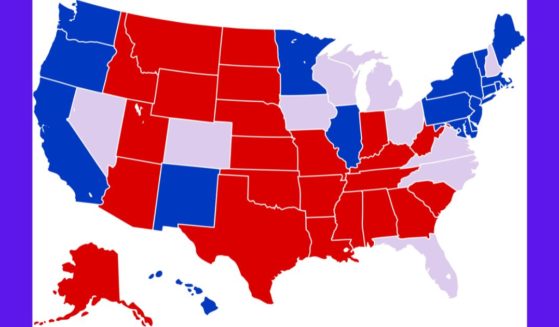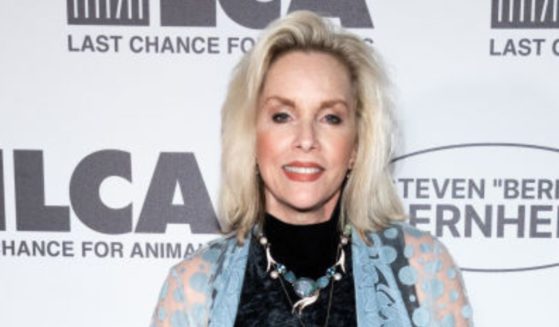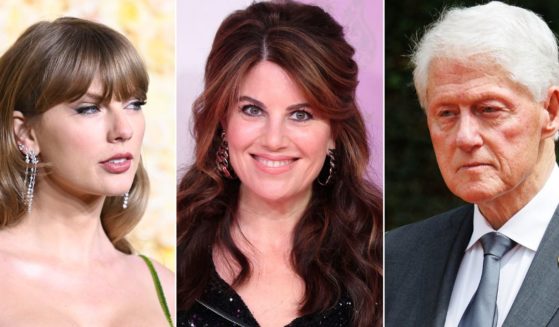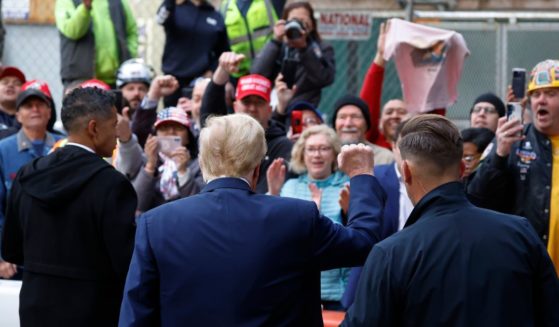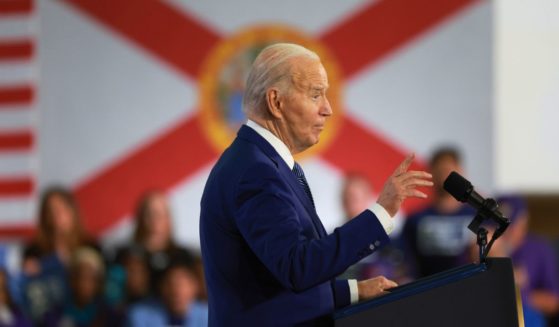When Jeff Censored Ryan: World's Largest Retailer Censors Free Speech
The 1989 film “When Harry Met Sally,” starring Billy Crystal and Meg Ryan, was a box office smash and remains a modern-day icon in the romantic comedy cinematic genre.
In 2019, “When Harry Became Sally,” an exposé of the transgender movement by Ryan T. Anderson, was published. And in February of this year, Amazon, the world’s largest retailer, decided to ban that book.
Accordingly, 2021 became the year when Jeff (Bezos, Amazon’s founder and executive chairman) censored Ryan (Anderson).
In 2016, less than 1 percent of the American population identified as transgender, which essentially means self-identifying as a different gender than the one biologically classified at birth.
In the grand scheme of things, I don’t particularly care very much about what gender my neighbor chooses to proclaim himself/herself/itself/theirself.
Granted, I’m concerned with some of the consequences, such as the disastrous notion of constructing multi-stall gender-neutral bathrooms in elementary, middle and high schools, but if my coworker, my cousin or a person next to me on the bus chooses to identify as a man, woman or aardvark, I really have more important things to complain about.
Some of these are our perpetual keeping our eye off the ball as the world’s foremost superpower and instead allowing bush-league nations to give us a run for our money; our pathetically porous borders under the current administration; an outright mockery of fiscal responsibility; political overcorrectness run amok; and the deterioration of American journalism to the point that far too many media outlets have devolved into feeding troughs doling out comfort food to their ideological bases.
In light of all of that, if my longtime mailman Bob has a sex-change operation, trades in his beard and mustache for eyeliner and lipstick and now goes by Roberta, as long as the mail gets delivered on time, I really don’t care.
Accordingly, under normal circumstances, I never would have purchased and read “When Harry Became Sally.” My schedule is quite busy, and I have to be judicious in what I read given my limited time. No offense, but the transgender movement simply doesn’t make it into my top 20 issues that pique my interest.
All of that changed when Jeff censored Ryan. Nothing will get me to purchase a book — even if it’s about staring at a piece of Scotch tape dangling from a ceiling fan — more than learning that it’s been banned here in the beacon of liberty founded by Washington, Adams, Jefferson, Hamilton and Franklin and preserved by, most notably, Lincoln, then two Roosevelts, Eisenhower, Kennedy, Reagan and Trump.
Anderson’s book focuses a great deal on “detransitioners”: those who spent time physically and emotionally transitioning to the opposite gender only to realize it was a terrible mistake — not what they really wanted, after all — and are currently in, or have completed, the process of transitioning back to their original classified gender.
In February, U.S. Sens. Marco Rubio of Florida, Mike Braun of Indiana, Mike Lee of Utah and Josh Hawley of Missouri wrote a letter to Bezos describing “When Harry Became Sally” as “one of the most rigorously researched and compassionately argued books” on transgenderism and concluding that by banning it, “Amazon has unabashedly wielded its outsized market share to silence an important voice merely for the crime of violating woke groupthink.”
The senators also underscored that “Amazon’s shortsighted censorship of this well-researched and thoughtful contribution to modern American discourse is not just a decision made in poor taste, but an assault on free speech that carries weighty implications for the future of open discourse in the digital age.”
In response, Brian Huseman, Amazon’s vice president for public policy, wrote that while the company strives to provide its customers with “access to the widest and most diverse cross-section of written and spoken word in retail today,” Amazon reserves the right not to sell certain content and in exercising that right chose “not to sell books that frame LGBTQ+ identity as a mental illness.”
Anderson, in turn, tweeted that “Amazon appears to have never read my book, but relied on hit pieces. As I pointed out before: ‘Please quote the passage where I “call them mentally ill.” You can’t quote that passage because it doesn’t exist.'”
I agree with the four senators that “When Harry Became Sally” is a rigorously researched, compassionately argued, important book on transgenderism, but most of all, I’m happy I was able to access a copy. I bought mine from Barnes & Noble, a bookseller that’s been in business 108 years longer than Amazon, and it shows.
Clearly, Barnes & Noble understands far better than Amazon that selling books means providing the world with a marketplace full of diverse ideas and vigorous debate.
The views expressed in this opinion article are those of their author and are not necessarily either shared or endorsed by the owners of this website. If you are interested in contributing an Op-Ed to The Western Journal, you can learn about our submission guidelines and process here.
Truth and Accuracy
We are committed to truth and accuracy in all of our journalism. Read our editorial standards.

